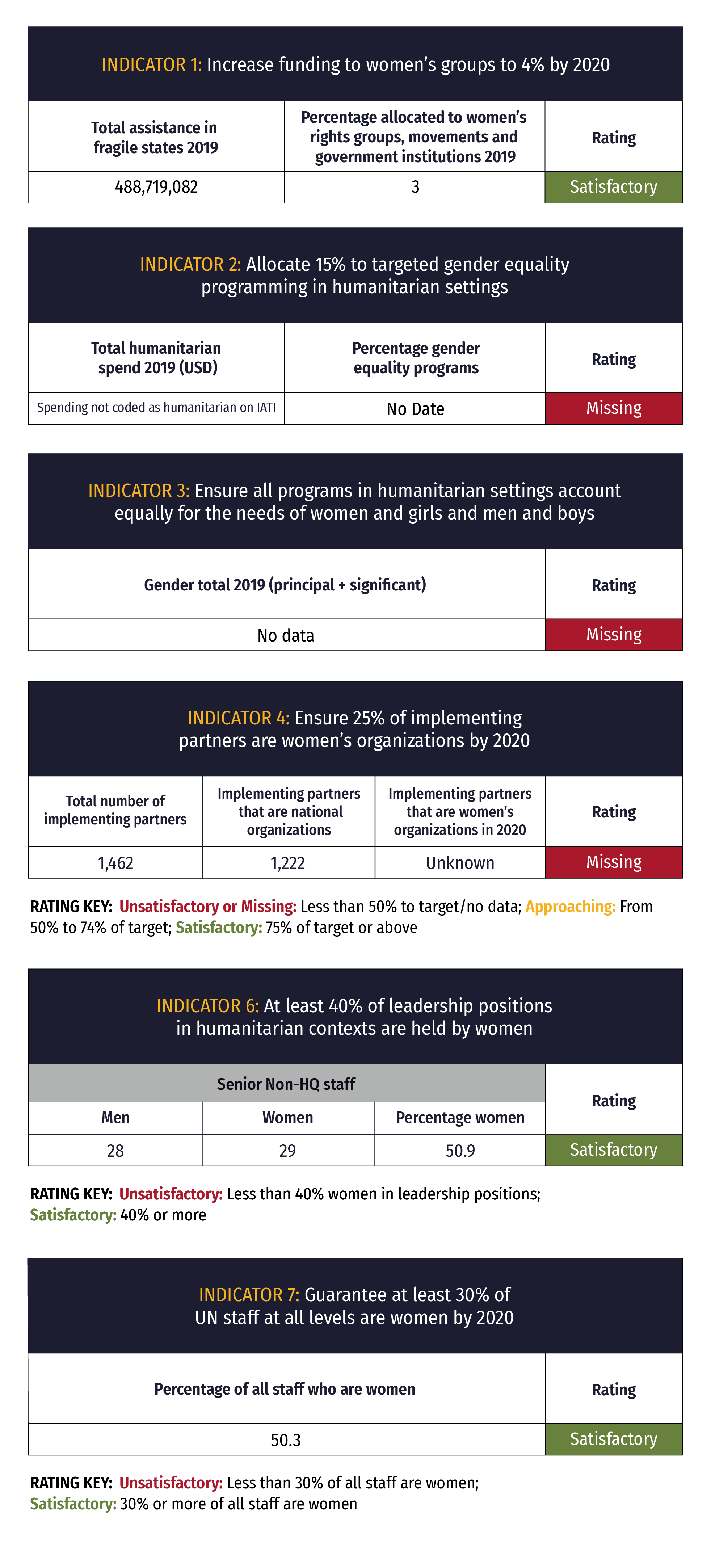The following information was submitted by several UN agencies reviewed in the report to provide additional context and data.
How United Nations Population Fund (UNFPA) Scored on Our Report Card

What UNFPA Is Doing to Support Women and Girls in Crisis
UNFPA, the United Nations sexual and reproductive health agency, works in over 150 countries worldwide guided by the Programme of Action of the International Conference on Population and Development (ICPD). UNFPA aims to achieve three transformative results: end the unmet need for contraception, end preventable maternal deaths and end gender-based violence (GBV) and harmful practices by 2030, as it strives to achieve the Sustainable Development Goals.
In humanitarian crises, UNFPA leads on the prevention and response to GBV; the strengthening of sexual and reproductive health services and delivery of emergency reproductive health kits; and the integration of mental health and psychosocial support, with a focus on women, adolescent girls and young people.
Taking an approach based on human rights and gender equality, UNFPA works to empower women and adolescent girls and enhance their leadership in humanitarian preparedness, response and recovery. Partnering with women-led and youth-led organizations helps ensure access to essential sexual and reproductive health information and services before, during and after crises. As lead of the GBV sub-cluster, UNFPA partners with national women’s organizations to co-lead at national and subnational levels where appropriate.
UNFPA works extensively with local women’s organizations with the recognition that local responders to GBV, including national NGOs and women-led organizations, are critical to safe, effective and sustainable GBV response, and the long-term recovery, wellbeing and resilience of GBV survivors. UNFPA strives in delivering against the commitments of the Grand Bargain to strengthen local partnerships.
In 2019, 38% of UNFPA humanitarian funds went to local and national partners including local women’s organizations — a share that far exceeded the Grand Bargain target. To ensure accountability toward its commitment to enhancing the role of women’s organizations in the humanitarian response, UNFPA is leading an initiative in the UN Partner Portal to enhance identification and tracking of funding to women-led organizations. This will enable UNFPA, later in 2021, to track humanitarian funding to women-led organizations.
In 2021, UNFPA has appealed for $818 million to provide lifesaving services and protection to 54 million women, girls and young people in 68 countries. In 2020, together with partners, UNFPA reached more than 7 million women in 53 countries with sexual and reproductive health services; 4.4 million people with family-planning supplies and services; and 2.8 million people with services to address GBV.
